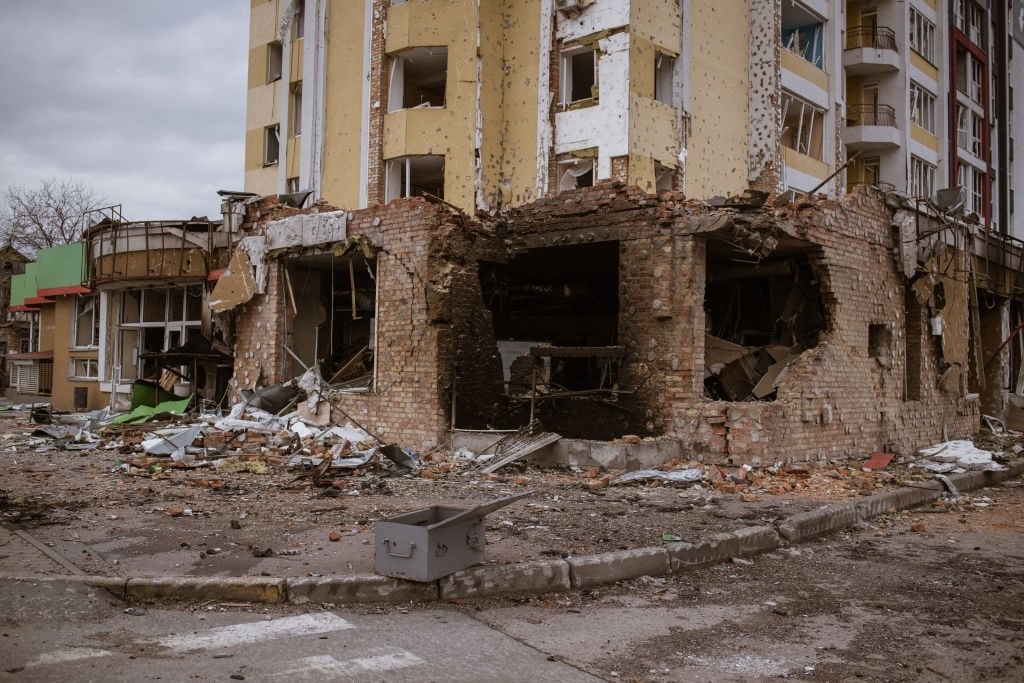All is not coming up roses for Russian military leadership. The command structure that began the murderous campaign in Ukraine is getting an overhaul. Russian President Vladimir Putin has appointed General Aleksandr V. Dvornikov to take charge of the Russian army in Ukraine. Dvornikov previously commanded the Kremlin’s forces in collaborating with Syria’s President Bashar al-Assad to put down anti-government rebels. He was known as “the butcher of Syria” for killing thousands of civilians. The Moscow leadership believed Dvornikov did such an excellent job of bombing Assad’s cities into dust they should give him a shot at Ukraine.
Moscow’s technologically superior and considerably overmatching military force is not doing well in subjugating Ukraine. “General Dvornikov’s appointment indicates growing frustration inside the Kremlin with Russia’s battlefield failures. But it also suggests Russia is doubling down on a savage, indiscriminate approach to war and is poised to kill many more civilians,” The Washington Times reports.
So, the new commander is on the hot seat to turn the war around for Putin. What do we know about him, though, other than his demonstrable ruthlessness? Putin and his new commander have known one another since meeting in East Germany just after the destruction of the Berlin Wall in 1989. Dvornikov and Putin shared a sense of Moscow’s nationalistic destiny to resurrect the Rodina. Both Dvornikov and the Russian president have kept in close contact over the years. The April 8 missile attack on the Kramatorsk train station in Ukraine, killing more than 50 people trying to escape the fighting, including five children, was the handiwork of Dvornikov, who ordered the attack.
According to the online news service E Prime Feed, the general was the commander of the Russian military and Wagner Group mercenary forces in Syria in 2015 and was responsible for at least 8,000 civilian deaths. With his accomplice al-Assad, Putin was accused by the UN of war-crime-level atrocities. “The latest report from the Independent International Commission of Inquiry on Syria focuses on events of July 2019 to January this year, and in particular attacks by pro-government forces on civilian targets like medical facilities, driving 700,000 civilians from their homes,” the UN report explained.
Now as it applies to Ukraine, “This is a Russian way of war; the Russian way of war is to kill as many civilians as they possibly can to force a capitulation of the regime that has been from day one,” General Jack Keane, US Army retired, told Fox News. “And until this war is over, they will continue that as a main feature of their military doctrine and their way of war.” So, when Putin was looking for a commander to carry out Moscow’s scorched-earth tactics in Ukraine, Dvornikov was the obvious choice.

(Photo by Andre Luis Alves/Anadolu Agency via Getty Images)
But Syrian rebels made up of various factions fighting against the al-Assad regime did not have a coordinated front against the Russians and the Syrian army. Additionally, shelling into oblivion a third-world people living in cinderblock, one-room houses, whose sole purpose is survival at best, is not the same as taking on a highly motivated European nation being rapidly equipped with modern, effective weapons by the US and Europe. Another difference is that the Ukrainians are aligned with their government fighting for the very existence of freedom, independence, and sovereignty. Those galvanizing and highly motivating core beliefs are not present among the Syrian rebels.
One other difference is essential to consider. The atrocities ordered by Dvornikov in Syria did not mobilize the free world, including the UN, to tag Russia as a geopolitical pariah, garnering sanctions and worldwide condemnation. What Russia is doing with its invasion of Ukraine and the Kremlin’s “way of war” has won that dubious distinction. It’s not likely a campaign of wholesale killing of innocent Ukrainian women and children is going to change Putin’s image.
New leadership for Russian troops in Ukraine may not make a difference, given the issues of an ineffective command-and-control structure, poorly trained troops, and reliance on mercenaries with no allegiance to Mother Russia. Killing civilians by the thousands in hopes of terrorizing Kyiv’s government into submission may not be a matter of changing the personality at the top, no matter how bloodthirsty he is. The Ukrainian military and the armed civilians fighting in the cities and neighborhoods they grew up in are a formidable challenge for Moscow. Russia’s experience in Syria may not translate to achieving battlefield success in Ukraine.
The views expressed are those of the author and not of any other affiliation.




